News and Highlights
We are proud to announce our latest news: Applied Materials and National University of Singapore expand semiconductor research lab.
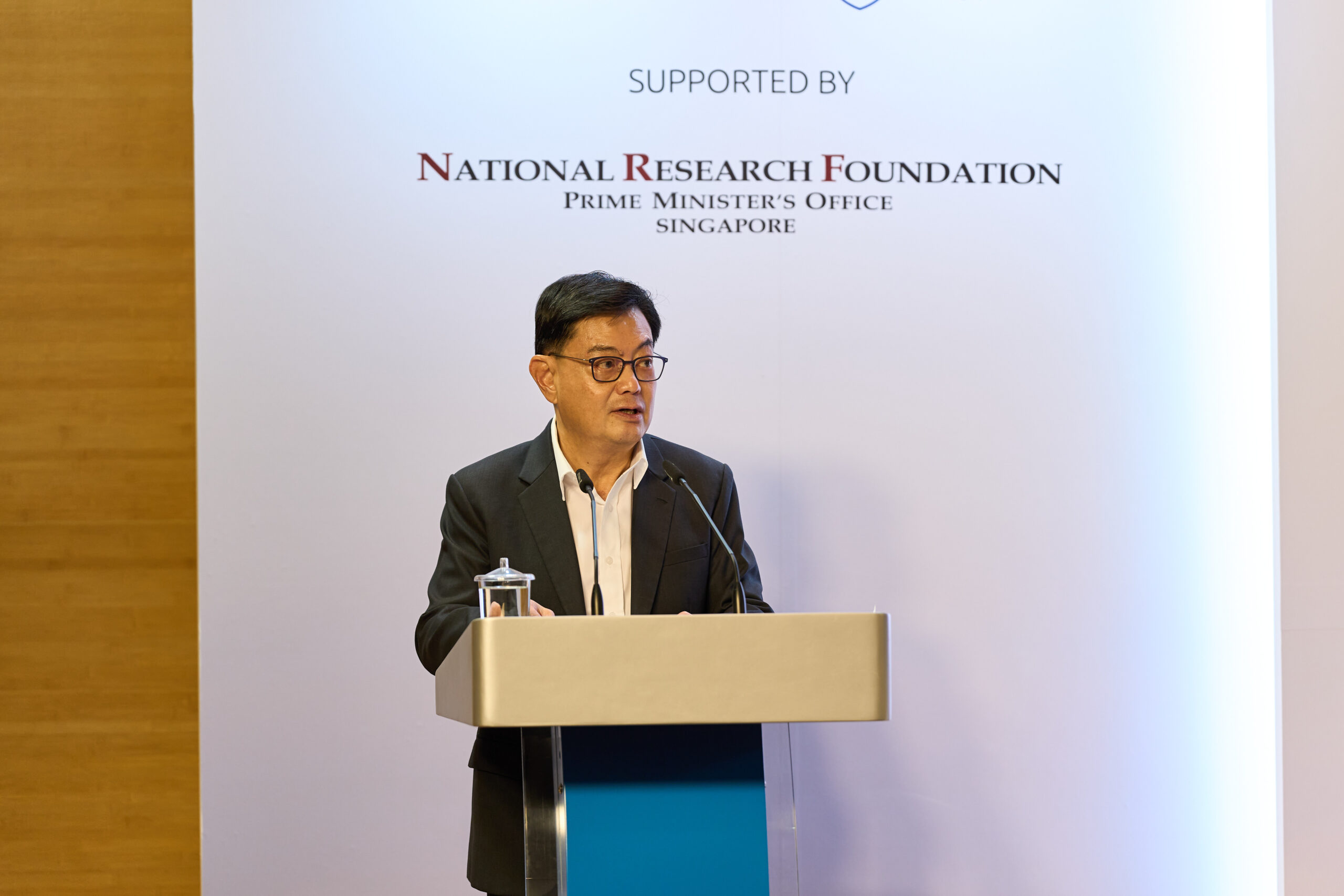
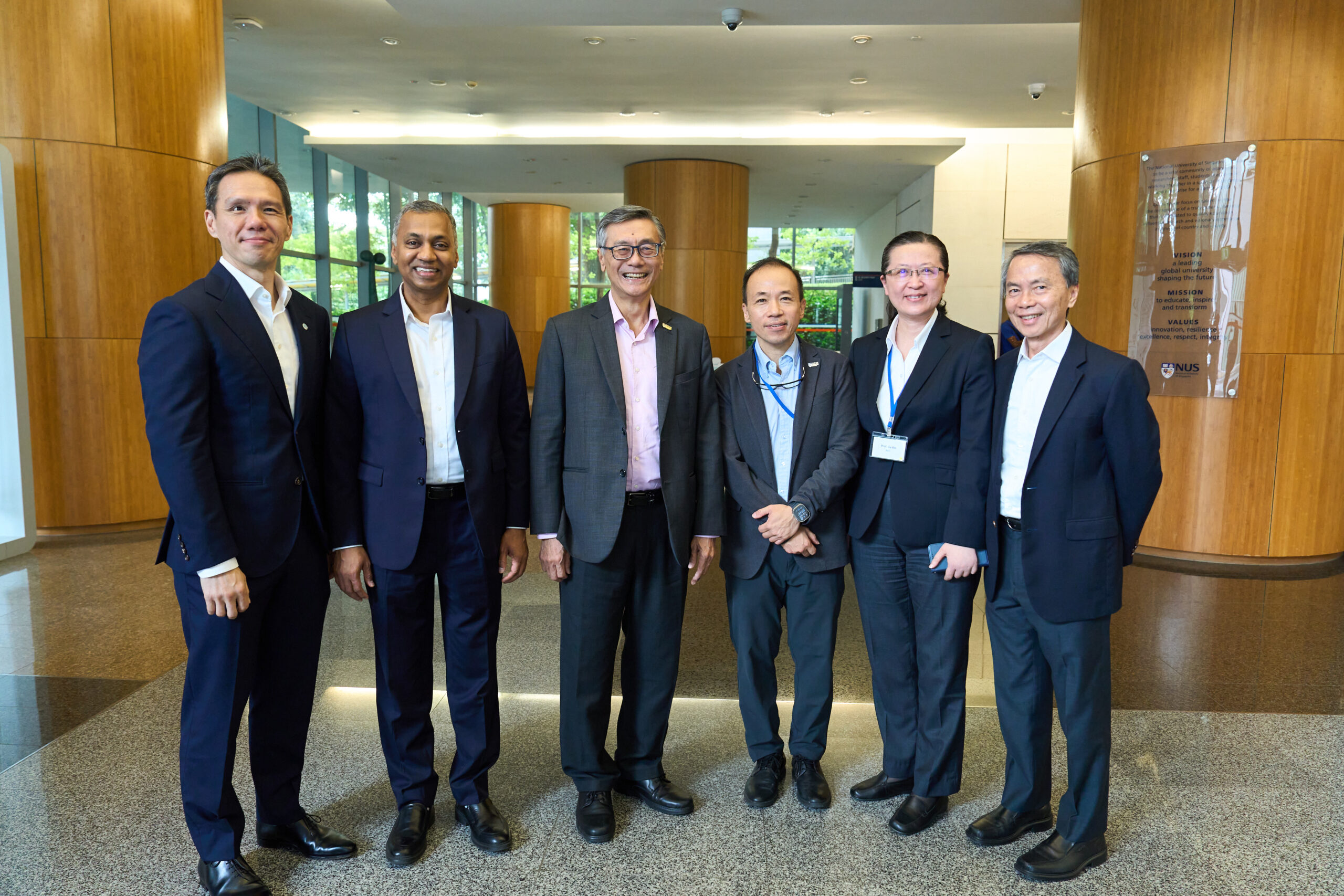
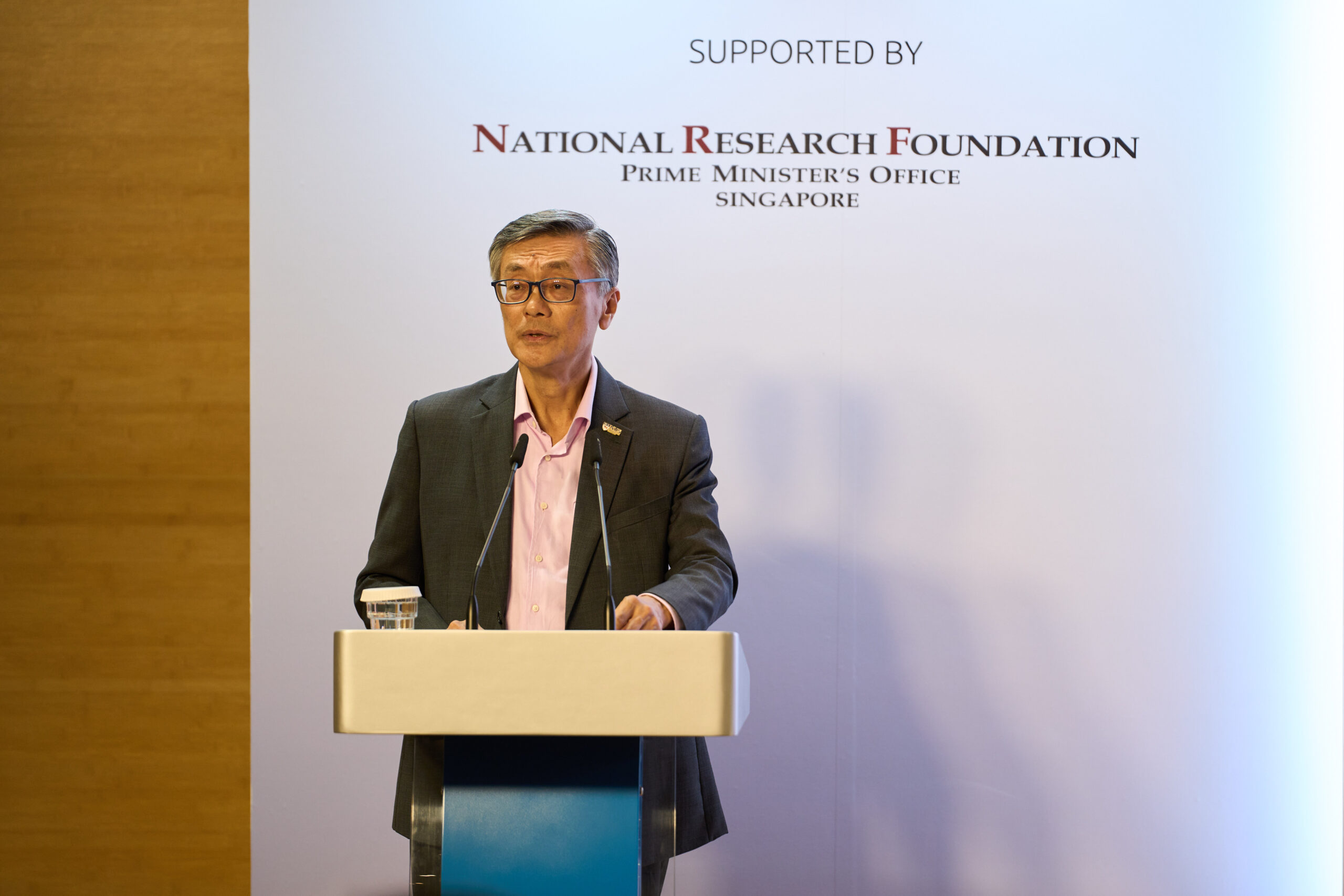
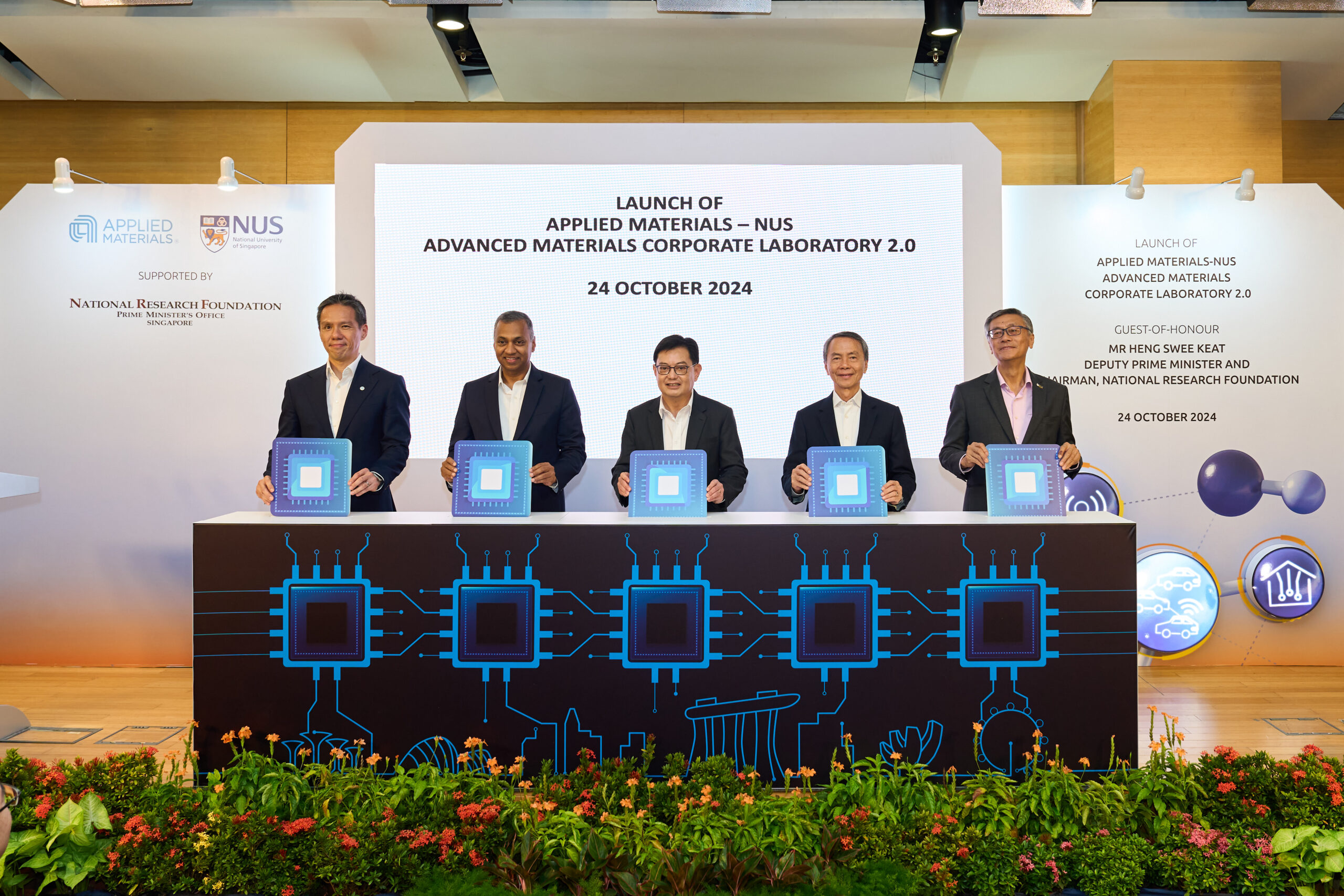
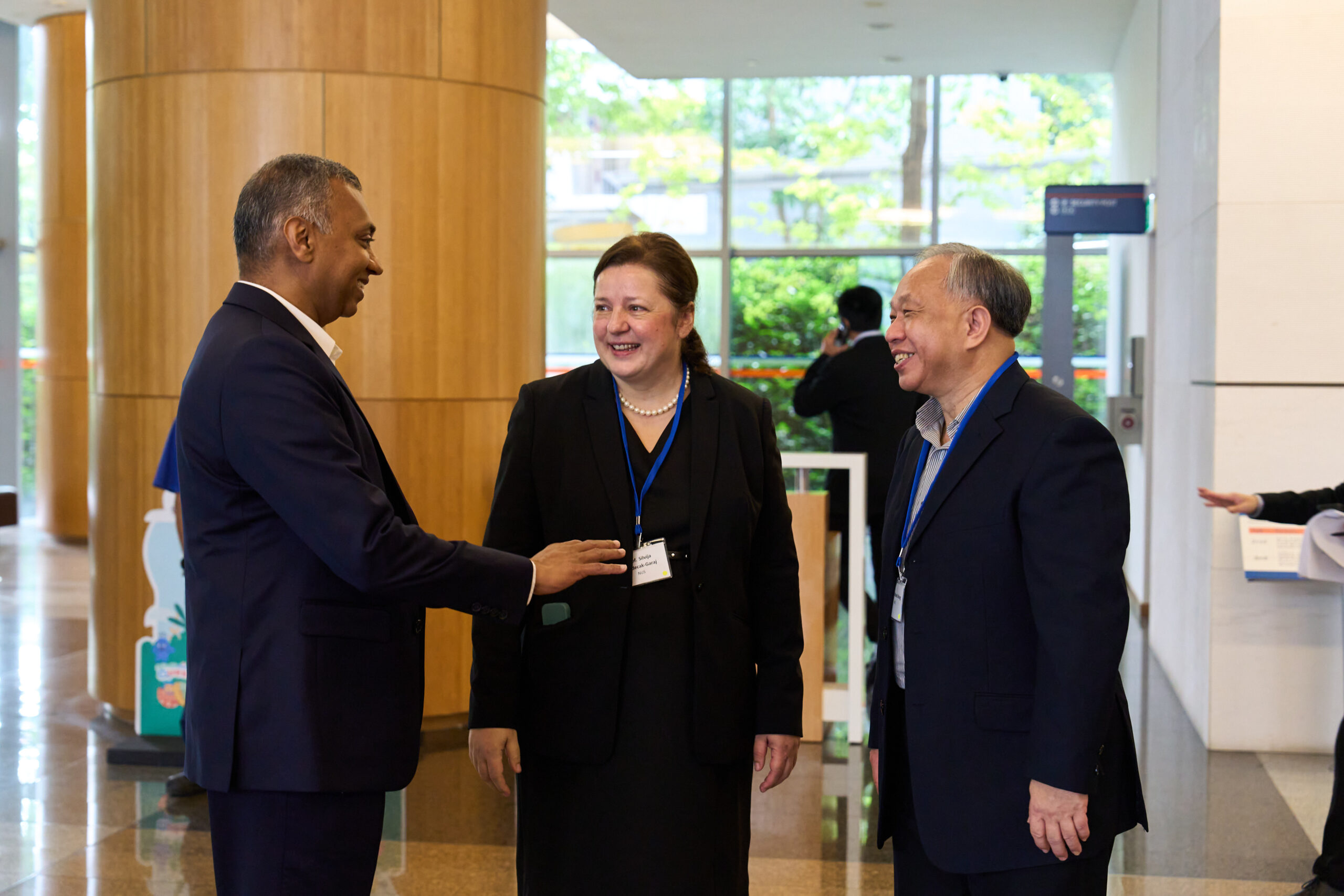
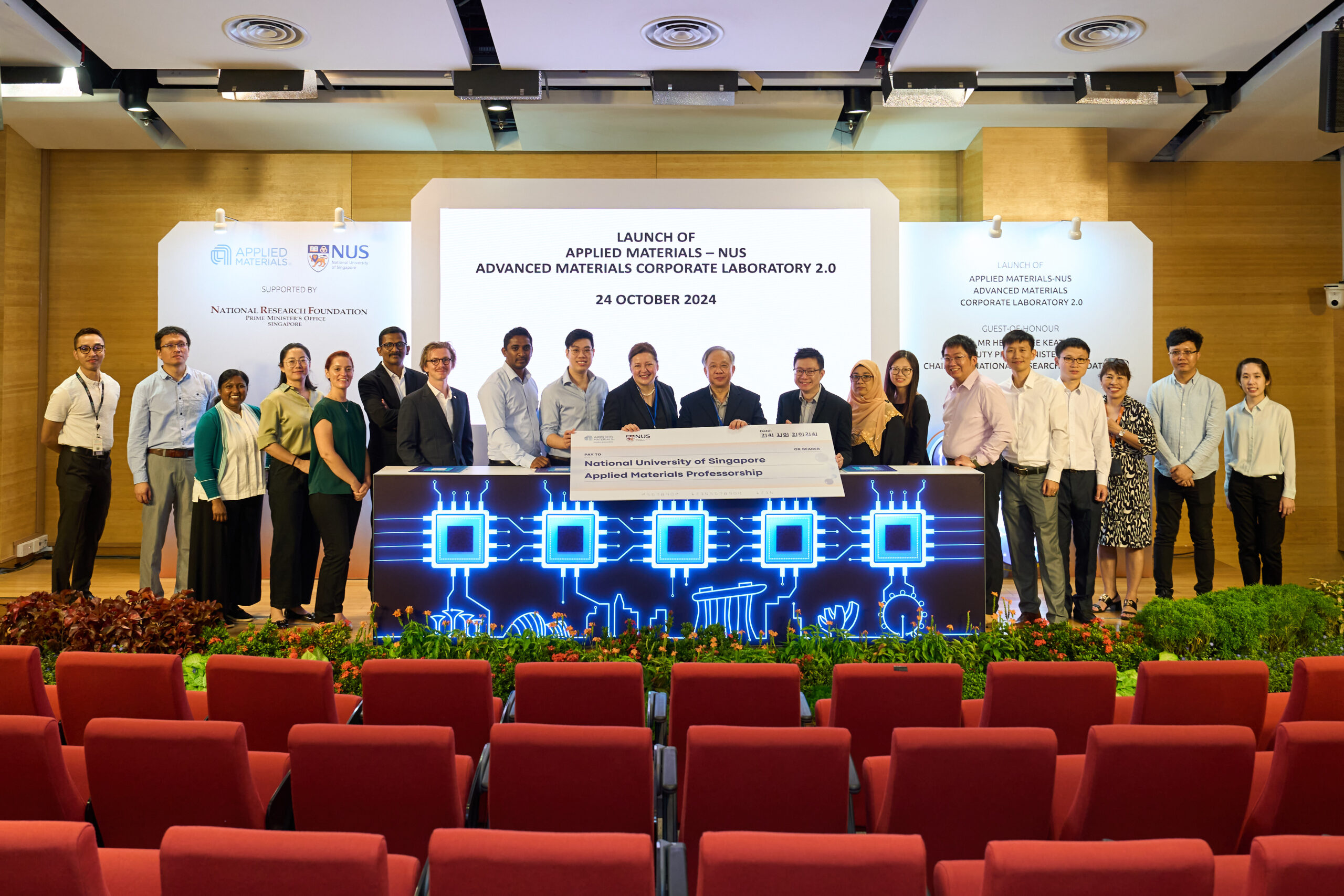
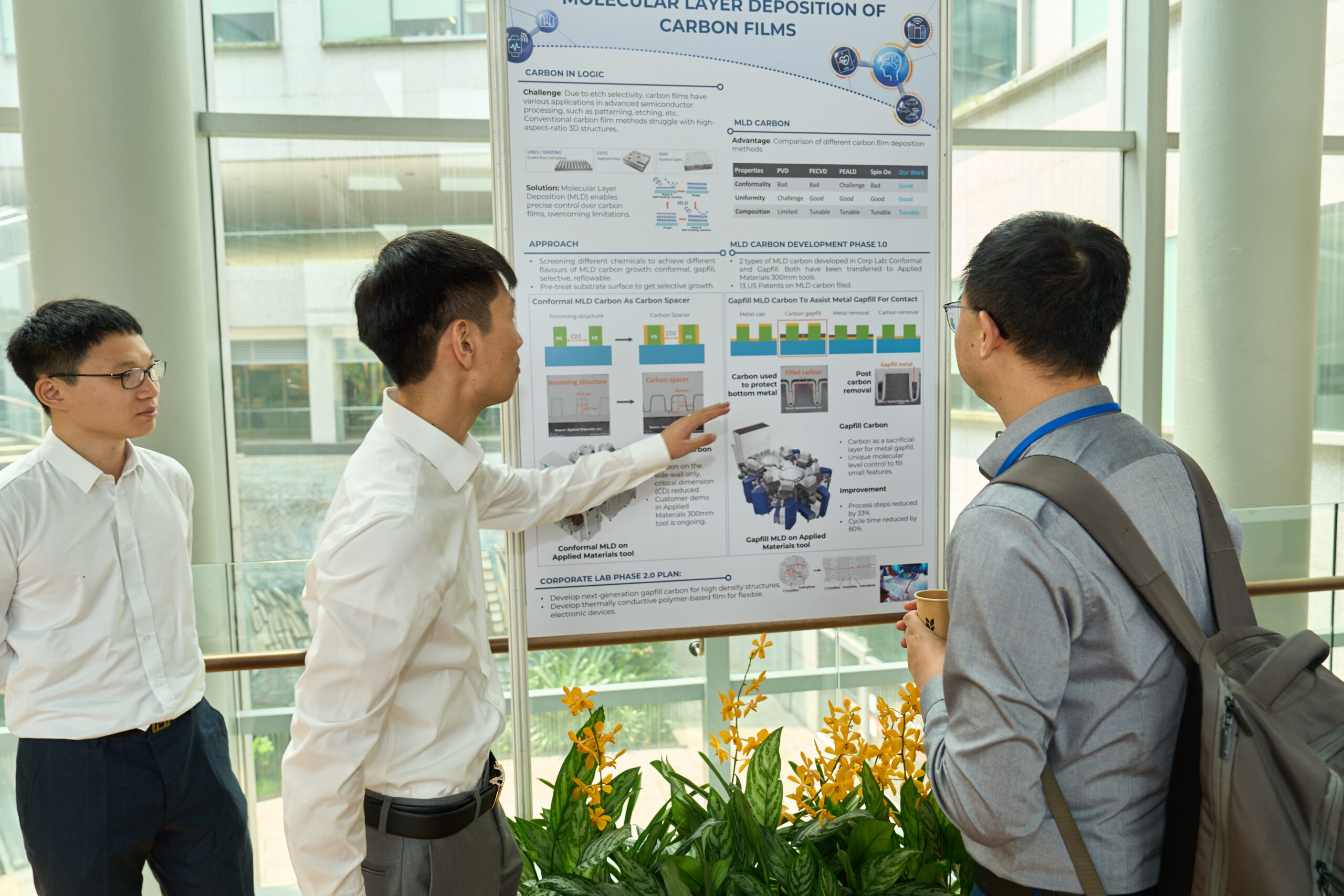
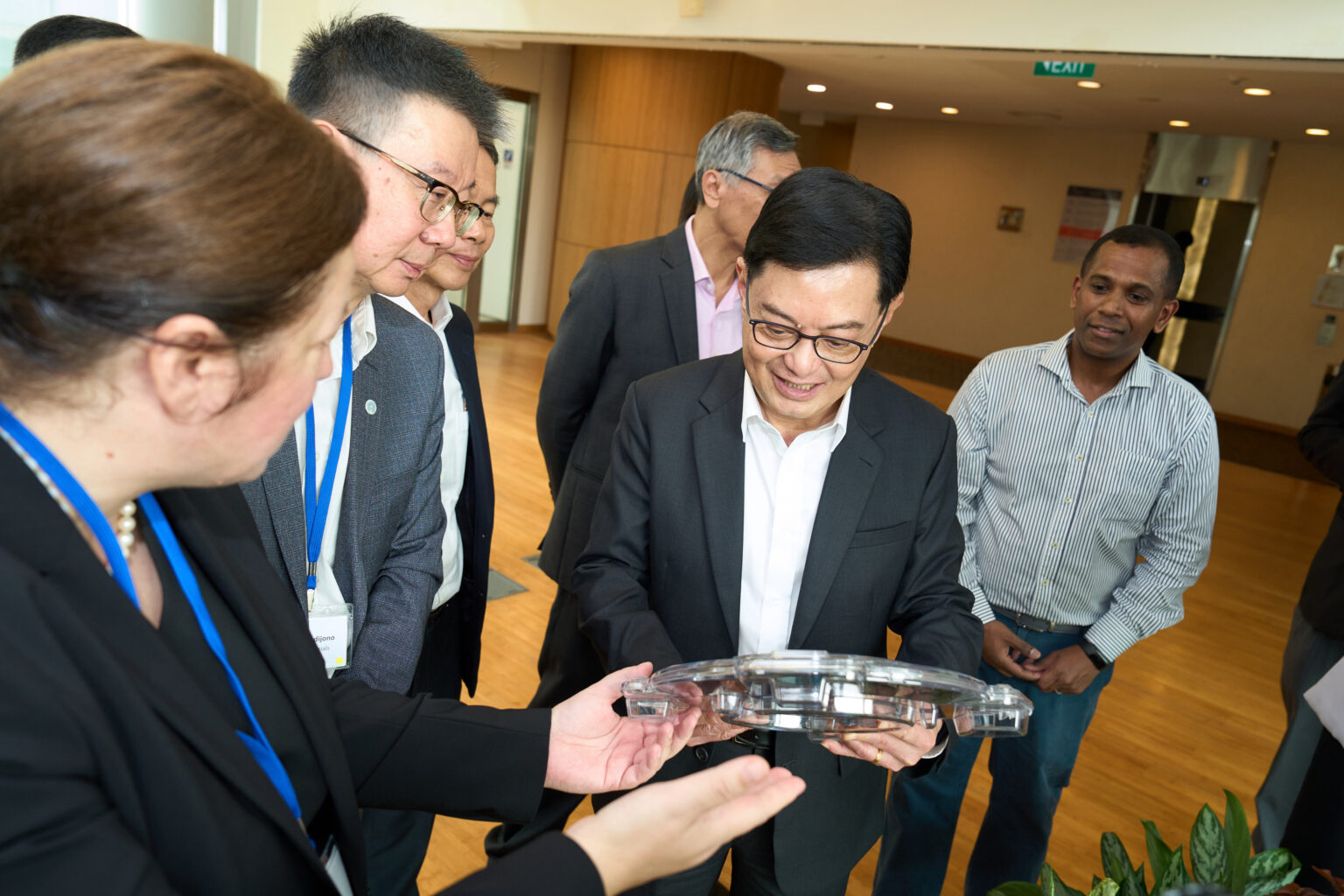
We are proud to announce our latest news: Applied Materials and National University of Singapore expand semiconductor research lab.








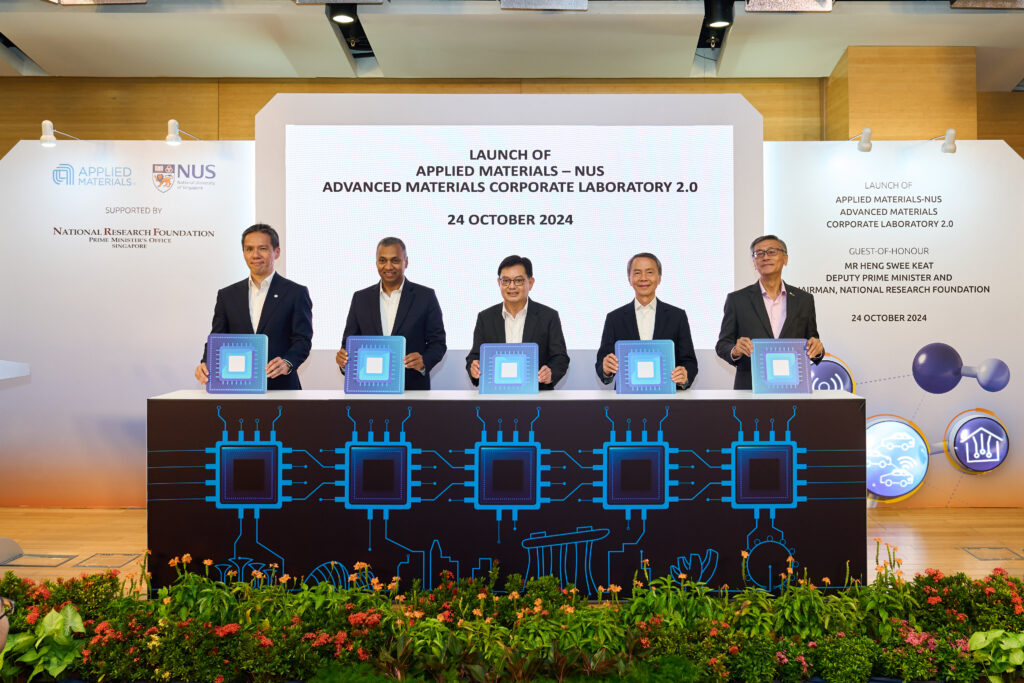
To further advance semiconductor research and talent development in Singapore, NUS and Applied Materials are expanding our collaboration to further advance semiconductor research and talent development in Singapore, highlighting cutting-edge innovations in advanced materials, microelectronics, and other breakthrough technologies.
On 24 October 2024, Mr Heng Swee Keat, Deputy Prime Minister and Chairman of the National Research Foundation was the Guest-of-Honour alongside industry leaders, government officials and senior members of the university at the launch ceremony.
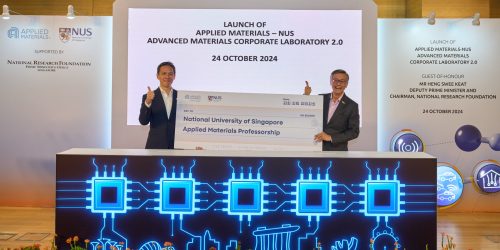
Mr Brian Tan (left), Regional President (South East Asia), Applied Materials, presenting a cheque to NUS President Professor Tan Eng Chye (right) for the establishment of the new Applied Materials Professorship at NUS.
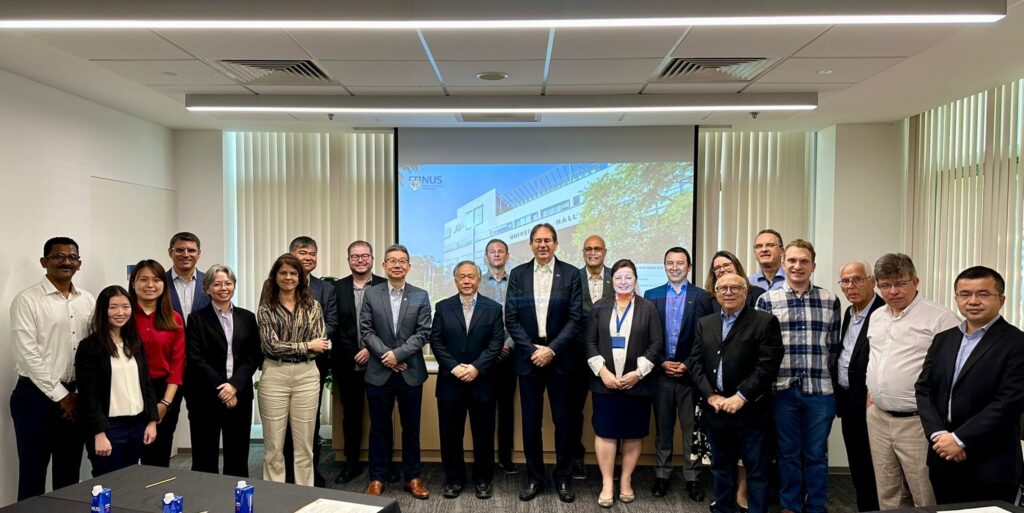
Date & Time: 26th April, 2023, 10.00am to 12.00pm
Venue: NUS-AMAT Corporate Lab Conference Room, Level 6, E6
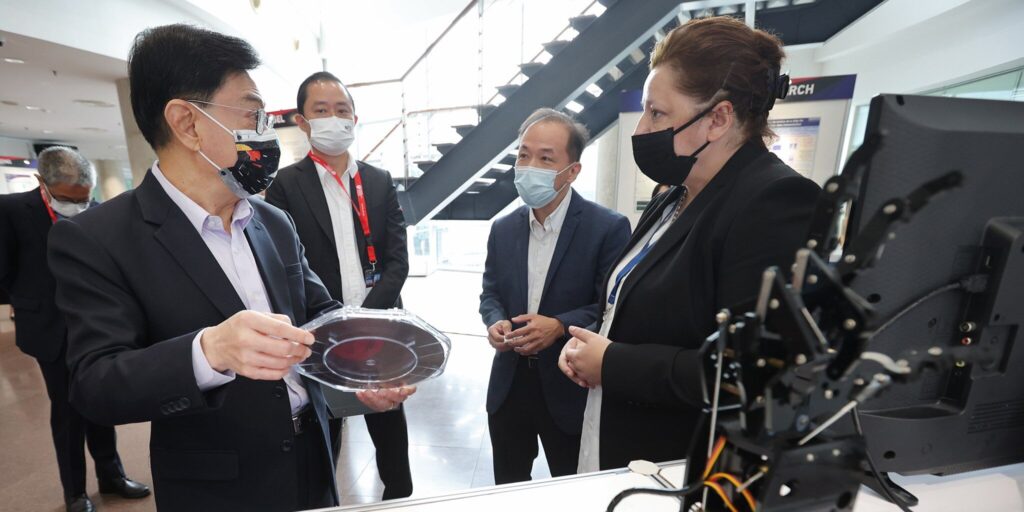
Deputy Prime Minister (DPM) Heng Swee Keat spoke to Professor Silvija Gradečak-Garaj, from the National University of Singapore. Together with her team, she works at an integrated material and module research facility (E6Nanofab) to enable the next generation of semiconductor technologies. DPM Heng is holding a silicon wafer coated with a nanocrystalline diamond film potentially used as a hard mask for the semiconductor processing industry and development of next-generation electronics.
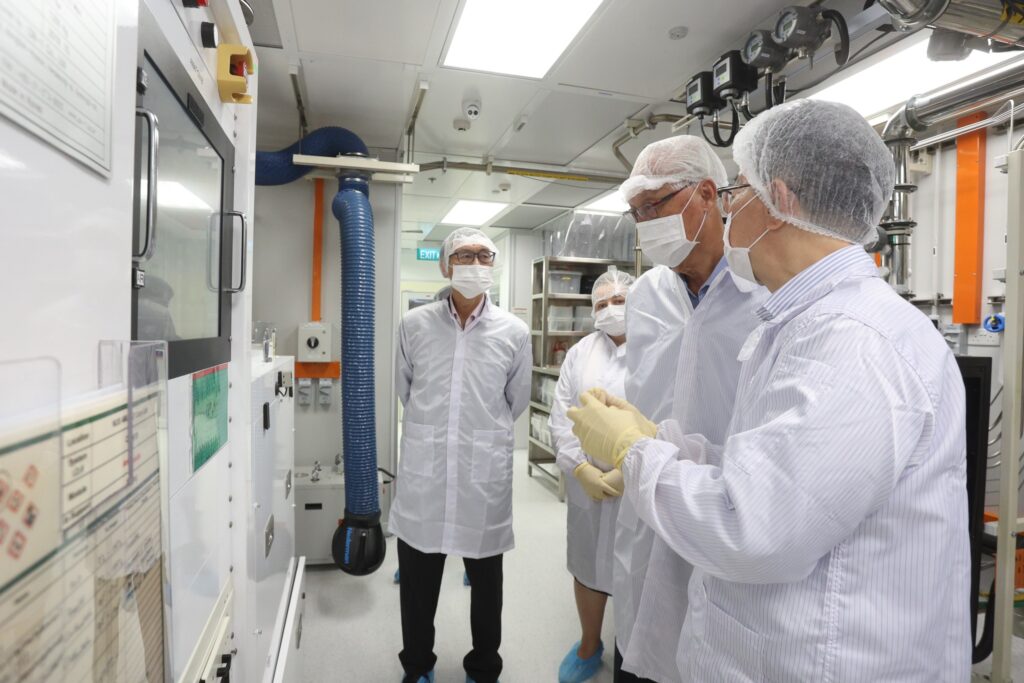
During his visit, Emeritus Senior Minister Goh Chok Tong was briefed on the key research projects which are expected to have major real-world applications to boost the semiconductor industry. The AMAT-NUS Advanced Materials Corporate Laboratory was established in April 2018, with a joint investment of S$70 million from National Research Foundation, Applied Materials, and NUS.
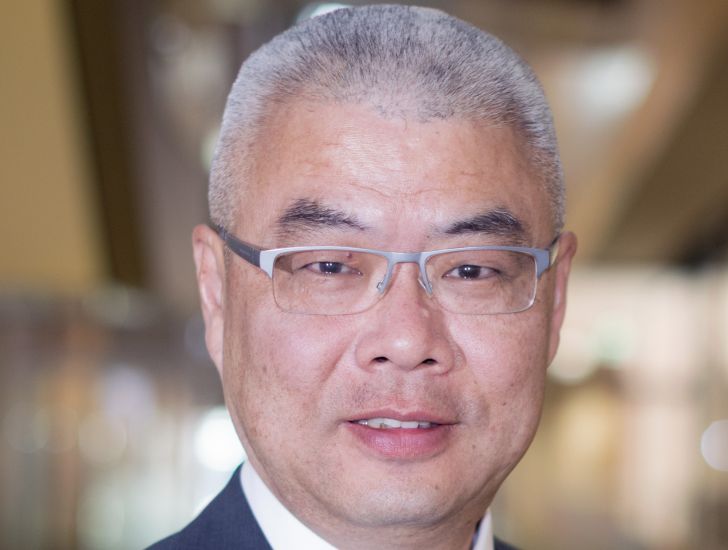
Time: 9.00am
Venue: Corporate Lab, Building E6
Professor Li chairs the Scientific Advisory Committee for the Hebrew-NTU Nanomaterials programme at CREATE.
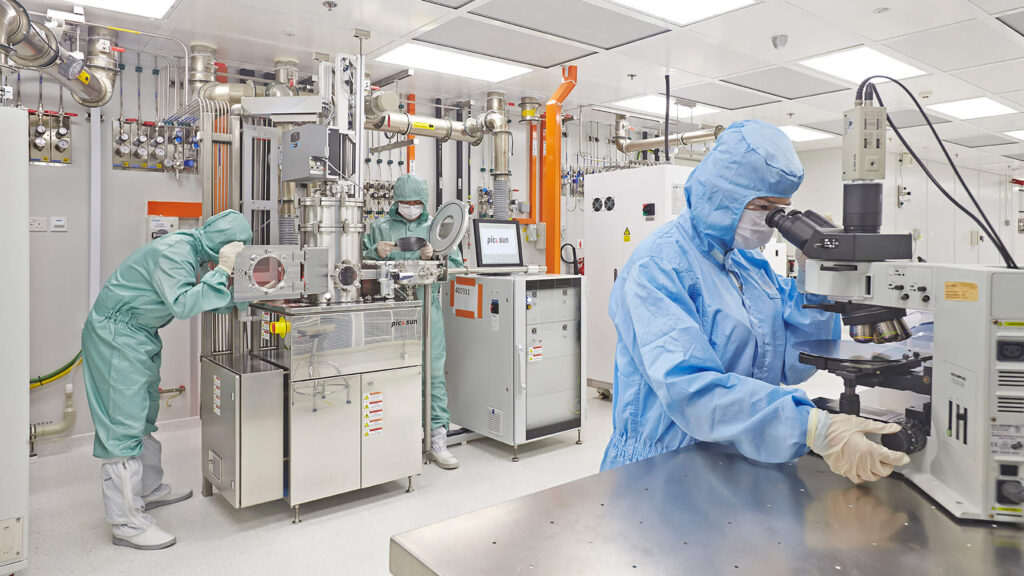
Time: 1.30pm – 2.50pm
Venue: Conference Room (Eureka I&II), AMAT-NUS Applied Materials Corporate Lab Site Visit to Applied Materials-NUS Corporate Lab.
An External Review Panel (ERP) visited the University from 22 Mar to 26 Mar 2021.
Date: Monday, 25 January 2021
Time: 3.00pm to 6.00pm
Venue: E6 Building, Level 6, 5 Engineering Drive 1, S(117411)
Date: Saturday, 31 October 2020
Time: 9.00 am – 12.00 pm
Venue: E6 Building, Level 6
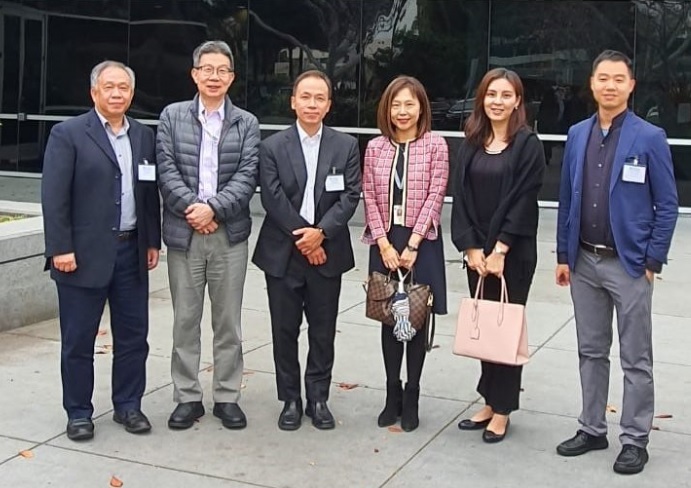
Co-Directors of Applied Materials-NUS Corporate Lab led a team of Principal Investigators and Staff from Singapore for a two full-day visit to Applied Materials in the United States from 12th to 13th of December 2019.
Professor Aaron Thean gave a lecture to Applied Materials researchers and staff on campus. His topic was “Defect Engineering for Novel Electronics – Paving the Way Forward towards a New Materials Engineering Renaissance”. The lecture highlighted the potential to provide additional knobs to enable application-specific functional scaling with innovative mix-and-match material integration and material engineering through defect control. Applications in material engineering include the emergence of a range of applications from IoT sensor network, wearables and neuromorphic computing. In addition, Professor Richard Wong presented his work on molecular simulation, where the audience learnt about how to use simulation to screen new materials.
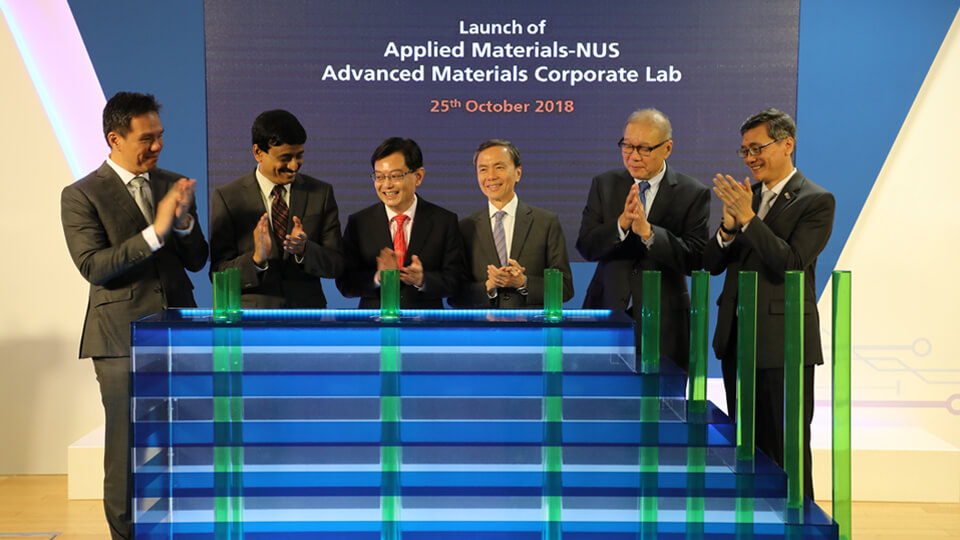
This is Applied Materials’ first research laboratory jointly set up with a university in Singapore and its establishment is supported by the National Research Foundation Singapore (NRF). The S$70 million Applied Materials-NUS Advanced Materials Corporate Lab was officially launched by Mr Heng Swee Keat (third from left), Minister for Finance.

Along with a $1.5 million fund in scholarships to grow the pool of talent in the electronics sector, the lab, a collaboration between US equipment supplier Applied Materials and NUS will work on accelerating the discovery and commercialisation of new materials for manufacturing advanced semiconductors. More than 50 researchers, engineers and doctoral students are expected to be trained at the lab in NUS.
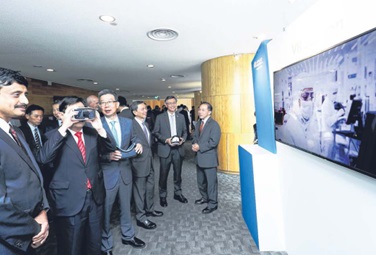
Speaking at the launch, Singapore’s Deputy Prime Minister and Finance Minister Heng Swee Keat said that electronics remain a key pillar of exhibits displayed at the launch of the lab. The new lab “seeks to develop the next generation of semiconductors that are smaller, cheaper, faster and more power efficient” DPM Heng said. “It will also reinforce NUS efforts in building research capabilities to ride the new waves of technological shifts in artificial intelligence and semiconductor technology which can be applied to autonomous vehicles, robotics and many others.”

